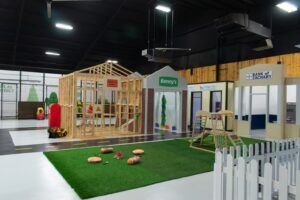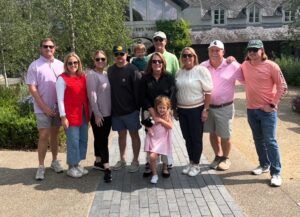Publisher’s view: Everyday efforts

As we emerge from the flood’s destruction and get started on the cleanup and the rebuilding of our city and surrounding areas, it’s hard to look back over the last few months without head-shaking disbelief. What a season it has been. Just a month before the waters rose, Baton Rouge drew national media attention when news correspondents filled the streets and hotels to document the killings and the funerals of three police officers. It was so hard to stomach as citizens. What do we do? What do we say to one another? How do we move forward?
I found myself trying to make more eye contact with the cashier at the grocery store. I tried to smile more at the people I passed every day. I’m here. I’m engaged. We are in this together. But what can one person do to make a difference?
“It’s a Minnesota plate,” said the officer. “I drove in from Minnesota.”
The man caught me inspecting the license plate of his police vehicle in the Coffee Call parking lot one Saturday morning after I had loaded my kids into my nearby car. I was floored. He drove all the way from Minnesota to attend the funerals for the fallen officers over that weekend. Minnesota. He was taking a stand, and making a difference.
What difference was I making?
Then less than 30 days later, flash flood warnings that we have grown to ignore became a real cause for concern. I remember actually being annoyed that school was canceled that Friday because of road closures. “Really,” I thought. “It’s been a long summer, these kiddos have just started to get back on a schedule a few days ago, and I’ve got all sorts of things I need to do. This doesn’t work well for me.” Then the rain kept coming down.
By Saturday morning, we saw that areas near us were beginning to take in water—areas that had never flooded before. The rain kept coming and people stayed close to home. Sunday morning dawned, and a whole new group of homes in our city and surrounding areas were filled with swamp water. And much of the cellular service in the Capital Region was down. Everyone was scrambling to help friends and family members pack up what they could before getting them out to higher ground. Men in boats saved, and women in rubber boots packed.
The rising swamp water did not discriminate.
It affected all races, all socio-economic levels, all lives. It was a reminder that we are all in this together. And that nothing—really nothing—on this earth is more sacred than our people.
But what have I done to make a difference?
“Survivor guilt is real,” said a friend at a recent lunch. “I don’t feel like I’m doing enough.”
It’s true. When you look around at all that others have lost, it makes you want to do more. Be more involved. Donate more. Serve more. Sacrifice more.
What more can we do?
There is much disaster relief that goes on behind closed doors. In private places. In families. Just because a calamity such as the flood hits our area, it doesn’t mean that the daily battles have diminished. Just because you can’t be out in the trenches removing mold while wearing a paper face-mask doesn’t mean that you aren’t significant. That you aren’t making a difference every day in the lives you touch. In the lives of those living under your roof. Sometimes disaster relief starts at home. Helping a sibling with an addiction, consoling a friend whose marriage is falling apart, praying for a wayward child.
The everyday struggles need champions too. And the everyday struggles need you.
The recent challenges of our city remind us that we are all in this together. That the daily task of getting by—much like the flood water—does not discriminate. It’s a season to focus on what really matters. And if you aren’t rebuilding a swamp-sodden house or you don’t have family members living with you while they repair theirs, you are blessed. Truly blessed. But you are still significant. And you can still make a difference.
Focus on mending your family and loving your friends. Try to engage more, and be available. Meet the shopkeepers’ eyes, and say hello. Bring a dinner to a displaced family. Everyone has struggles. And we are all in this together.












